That was the sharing of Master Nguyen Dang Ly, Principal of Ho Chi Minh City International College, at the transfer ceremony of the semiconductor technology training program between Dai Diep University (Taiwan) and Ho Chi Minh City International College on July 18.
'Thirst' for human resources in the semiconductor industry everywhere
Master Nguyen Dang Ly cited statistics from the US Semiconductor Industry Association (SIA) that the US semiconductor industry is expected to face a shortage of about 67,000 workers by 2030. South Korea alone is also short of tens of thousands of workers each year.
Mr. Lee Tsing-hua, Dean of the Institute of Technology, Daye University, also said that the demand for human resources in the semiconductor industry is currently at a high level. Taiwan needs tens of thousands of workers each year in this field.
Mr. Lu Huyen Lun, Director of the International Cooperation Office, Da Ye University, said that not only Taiwan, there is a shortage of human resources in the semiconductor industry in many countries and territories. Taiwan is focusing on training human resources to serve the semiconductor industry in many countries.
In Vietnam, the goal of the program "Developing human resources for the semiconductor industry to 2030, with a vision to 2050" approved by the Government in September 2024, strives to train at least 50,000 university-level or higher human resources to serve the semiconductor industry by 2030; train at least 15,000 human resources in the design stage, at least 35,000 human resources in the production, packaging, testing and other stages of the semiconductor industry.
However, according to Master Nguyen Dang Ly, currently the whole country only trains 1,000 university students each year in the field of semiconductor design, almost no college trains in the production, packaging, and testing sections. “Regarding the need for human resources, if microchip design requires 1 person, then 25 people are needed for the remaining sections - production, packaging, and testing. This section requires a lot of human resources but has not been focused on training,” Master Ly shared.
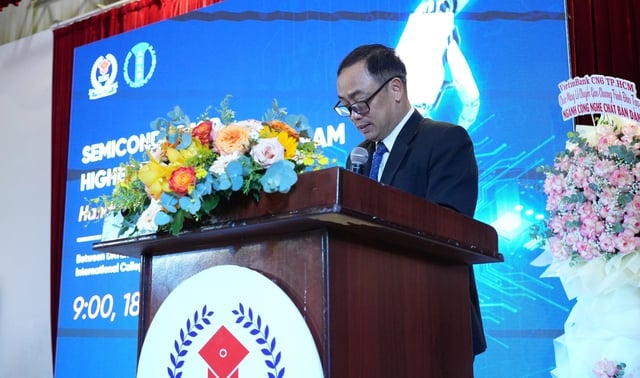
According to Master Nguyen Dang Ly, in the semiconductor industry, if one person is needed to design a microchip, then 25 people are needed for the rest - production, packaging, testing.
PHOTO: YEN THI
Full scholarships for college students
Master Nguyen Dang Ly said that in order to meet the human resource needs of society, the school has signed a cooperation agreement with Dai Diep University to transfer the training program in semiconductor technology.
The school’s semiconductor training program will be implemented under the 2+2 program. Accordingly, students will study for 2 years in Vietnam, then transfer to Dai Diep University. What is special is that students will receive a full scholarship (INTENSE scholarship) when studying this program.
"Students can study one of four majors at the school, including computer programming, computer network administration, automotive technology, industrial electricity, and then transfer to study semiconductors in Taiwan," said Master Ly.
The condition for transferring to study in Taiwan is that students must achieve TOCFL A2 Chinese proficiency. Chinese language training is free.
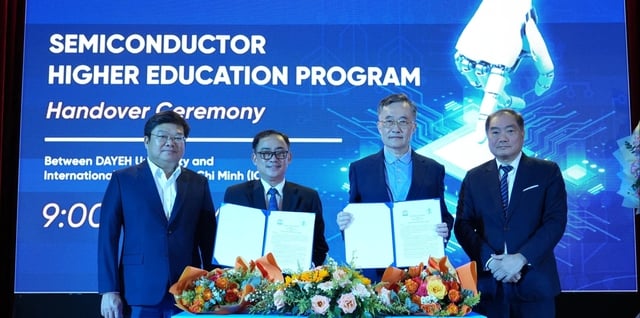
Master Nguyen Dang Ly (center, left) and Mr. Ly Thanh Hoa (center, right) signed the agreement on semiconductor technology transfer.
PHOTO: YEN THI
Regarding training, Mr. Lu Huyen Luan said that Dai Diep University combines theory and practice training. The unit also equips laboratories, modern machinery and equipment, especially similar to businesses for students to practice and stay close to reality.
"After graduation, students can work as semiconductor engineers, packaging, testing, product development engineers, electronics engineers, materials research and development engineers...", Mr. Lu Huyen Luan added.
Source: https://thanhnien.vn/khat-nhan-luc-nganh-ban-dan-khong-chi-voi-thiet-ke-vi-mach-18525071820392804.htm



![[Photo] 60th Anniversary of the Founding of the Vietnam Association of Photographic Artists](/_next/image?url=https%3A%2F%2Fvphoto.vietnam.vn%2Fthumb%2F1200x675%2Fvietnam%2Fresource%2FIMAGE%2F2025%2F12%2F05%2F1764935864512_a1-bnd-0841-9740-jpg.webp&w=3840&q=75)

![[Photo] Cat Ba - Green island paradise](/_next/image?url=https%3A%2F%2Fvphoto.vietnam.vn%2Fthumb%2F1200x675%2Fvietnam%2Fresource%2FIMAGE%2F2025%2F12%2F04%2F1764821844074_ndo_br_1-dcbthienduongxanh638-jpg.webp&w=3840&q=75)


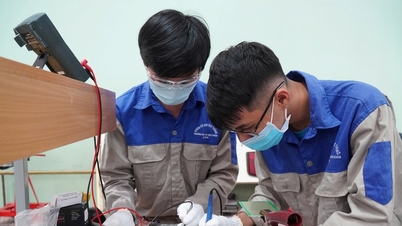

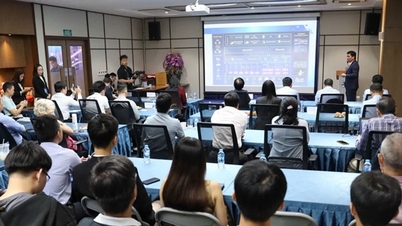

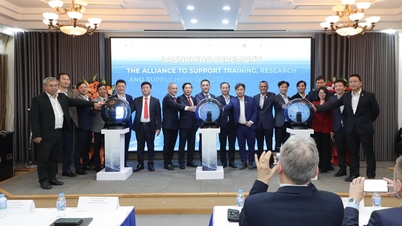

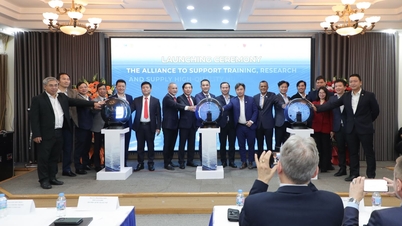


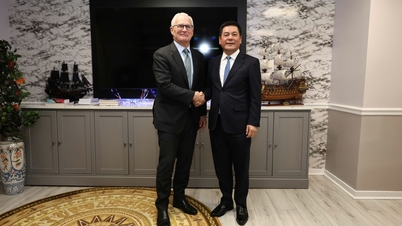








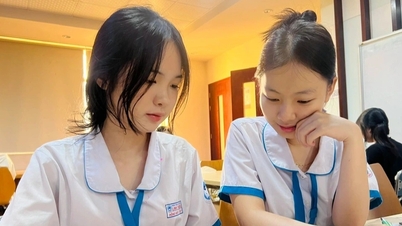
































































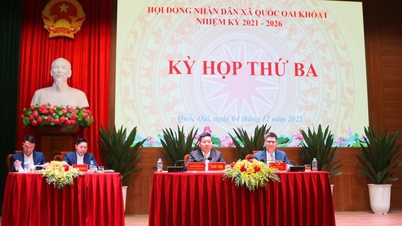
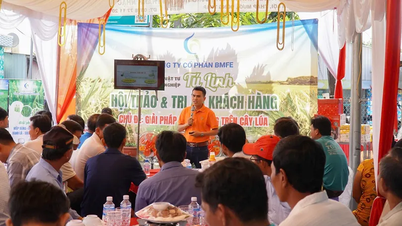

















Comment (0)